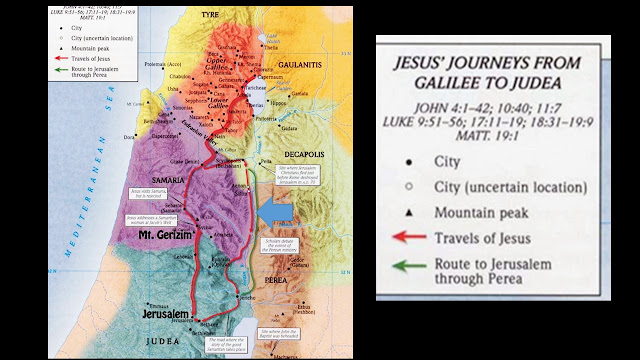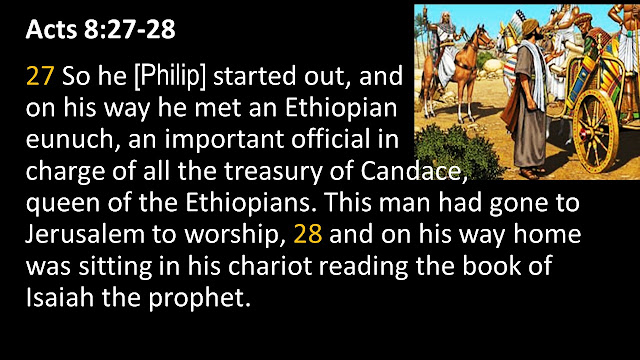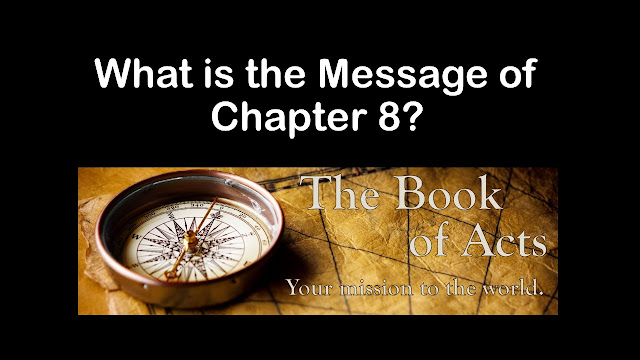In the opening of chapter 8, Saul gives approval of the killing of Stephen, with the intention of killing even more of those of “The Way” as Christians were called at the time. We will also take a look at Samaria that was situated between Judah and Galilee, where portions of chap. 8 takes place.
Note: you can always go back to the previous lesson, via the Blog Archive in the upper right hand corner of this page. just click on a date.
Chapter 7 ended with the last words of Stephen as he was being stoned to death for his faith. Saul was there, filled with the same hatred as the Sanhedrin against Christians. Saul, (later to become Paul), imprisoned Christians. He is the same Saul that heard Peter preach before the Sanhedrin, and yet, he wasn’t changed at that time, his hatred continued against what he considered heretical teachings against Judaism. Saul would be considered a righteous Jew in his day!
Philip, one of the seven deacons appointed by the apostles in chap. 6, went into Samaria, a place despised by the Jews, and performed many miracles as noted in v.7.
Map shows Samaria, where Philip “went down” to proclaim Christ, even though it’s north of Jerusalem. The Bible describes the terrain with Samaria being at a lower elevation than Jerusalem which was situated in a hilly area. Jerusalem is surrounded by valleys and dry riverbeds
In spite of the miracles of Philip and the Apostles, many still rejected their words about Jesus Christ as Lord and Savior and persecuted the Church. We can be confident that their intense hatred was instigated by Satan and his demons.
1 Tim 4:1 The Spirit clearly says that in later times some will abandon the faith and follow deceiving spirits and things taught by demons.
2 Cor 11:13 For such men are false apostles, deceitful workmen, masquerading as apostles of Christ. 14 And no wonder, for Satan himself masquerades as an angel of light.
In Deuteronomy 18:10-12, sorcery is listed among the sinful practices of the nations surrounding Israel. God calls it an abomination: “There shall not be found among you . . . anyone who practices divination or tells fortunes or interprets omens, or a sorcerer or a charmer or a medium or a necromancer or one who inquires of the dead, for whoever does these things is an abomination to the LORD.
The Jews deliberately bypassed Samaria out of religious differences and hatred for the Samaritans.
The Samaritans believed that Mount Gerizim was the original Holy Place of Israel from the time that Joshua conquered Canaan (what was to become Israel) after their exodus from Egypt and wandering in the desert.
The Samaritans are a distinct ethnic and religious group found today mostly in Israel. They were a racially mixed people with Jewish and pagan ancestry, although they worshiped Yahweh as did the Jews. The history and origins of the Samaritans are difficult to define, as many of their writings have not survived. There are about 550-600 active practitioners of the Samaritan religion with some admixture of Islam, most of whom live in the city of Nablus in the area now known as the West Bank, as shown on next slide.
Samaria has been under Israel administration since 1967, when the West Bank was defined by Israeli officials as the Judea and Samaria, of which the entire area north of the Jerusalem District is termed as Samaria, also called Sebaste, modern Sabasṭiyah, an ancient town in central Palestine.
In these verses from the Gospel of John, Jesus addresses the issue of what religion was right regarding worship, Jew or Samaritan.
Philip was still in Samaria. The Holy Spirit helped spread the Gospel message by signs and miracles. Why not signs and miracles today? In those days, it brought people to belief in Jesus; today it would be used by fakers to fool and trick people for their own personal gain. There is a time and place for everything God does, even miracles.
The apostles sent Peter and John to Samaria, to ensure that what was being said about their acceptance of God’s Word was an actual acceptance of Jesus Christ. Since the Holy Spirit had not yet come upon them, and they were not yet born-again (John 3:3). Baptism alone (v.16) did not save nor bring one to a saving faith in Jesus Christ. Baptism was/is a visible sign of their acceptance and faith in Jesus Christ.
John 3:3 In reply Jesus declared, "I tell you the truth, no one can see the kingdom of God unless he is born again.
Paul reminds us in Romans and Galatians that we are saved by grace alone, through faith alone, in Christ alone, and not by works, which applies to every Jew, every Samaritan, and every Gentile that accepted Jesus Christ as Lord and Savior. These verses apply to Acts 8:14-17 in that we receive the Holy Spirit by grace, through faith. It was true then and is true now.
A summary of v.18-24: Laying on of hands is a sign and seal for ordinations; even healing as noted in the Book of James. The gift that Simon wanted to buy, wasn’t to honor God as noted by Peter, but as a means of profit.
The Holy Spirit displayed visual signs in the early ministry of the apostles to demonstrate that what they professed was truth. Miracles of healing accompanied their preaching of the Word. Today, the church most likely would put more emphasis on miracles than in sharing the gospel, itself. We can be certain there would also be those who would fake miracles for personal gain. And the Word would never be enough unless accompanied by miracles.
Peter admonishing Simon to repent. Peter’s word struck a cord with Simon, sufficiently to ask for prayer. But, was it true repentance or just fear? We can fear punishment for our sins, but there is also joy in saving grace and forgiveness.
Map shows the route Peter and John took (v.25) on their return to Jerusalem stopping at many Samaritan villages along the way. Map also shows the desert road Philip took from Jerusalem to Gaza (V.26).
Green arrow is route the Jews took to bypass Samaria, when traveling between Galilee and Judea.
Philip was sent by an angel (v.26) to Gaza to intercept the Ethiopian eunuch, who was a Jewish convert that believed in the Lord, Jehovah. He was a high court official of Candace, queen of Ethiopia, and was in Israel to worship at the temple. On his trip home to Ethiopia, he had a life-changing encounter with Philip the evangelist.
V.30 tells us that Philip ran to catch the chariot, which implies that the chariot was moving. Then he had to raise his voice loud enough to get the eunuch’s attention.
V.32-33 are quoted from the Book of Isaiah 53:7.
V.35 Philip explained that Isaiah had prophesized about Jesus, and that Jesus was crucifixion as an atonement for our sins. Something we could never earn on our own merit before a holy and righteous God. Only God’s atonement and grace could suffice.
The eunuch desired to express a sign of his faith with baptism (v.36-39). V.37 is not included in many Bible translations, including the NIV, because it is not found in the oldest and best translations of Acts.
Philip was transported by the Spirit, from Gaza to Azotus (Az-o-us) as shown on the map (dotted line). From there, he continued preaching the gospel all the way to Caesarea (red line on map).
What the seaport city of Caesarea is believed to have looked like during the time of Philip.
=
The Holy Spirit isn’t transporting people today like He did with Philip. But, we have radio, TV, Zoom, Livestream, social media like Facebook and Twitter, to share the gospel. An email, a casual conversation, all of which are means to share the good news that Jesus Christ is not only Lord, but Savior from eternal damnation in hell, and separation from God. What accompanies the Word is eternal bliss in heaven with God. Something worth pondering, especially for anyone who never accepted Jesus Christ as Lord and Redeemer. and repented of their sins.
It gets down to praying in the Spirit. How effective are our prayers? How often do we pray, and do we know that God is even listening? Adrian Rogers' 43-minute message explains: How to Pray in the Spirit.
https://youtu.be/Px9SVbmR9PE
(copy and paste into your web browser)
My goal is to see today’s world and our lives from a biblical perspective. In our Sunday Foundations studies, 9:00 A.M. in Heritage Lounge, we are currently looking at God’s sovereignty and the State of Israel. Hope to see you there.
Is America a Nation in Crisis, as posted last week? We need to pray for America. If not us, then who? If not now, then when? A whole generation’s future is at stake, perhaps our own children, grandchildren, and perhaps even our great grandchildren.
End of
The Acts of the Apostles
Chapter 8































No comments:
Post a Comment